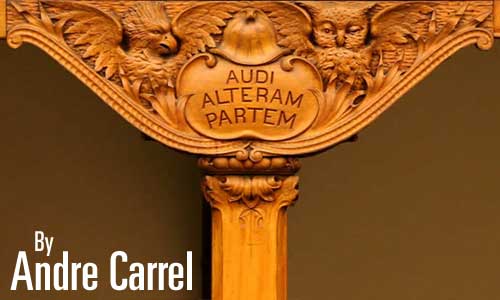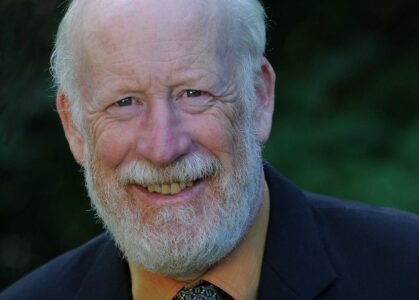RESTORING DEMOCRACY
This column is not meant to be a book review, but a review of what others have written helps us understand where we are and what the future may bring.
Historian Arthur R. M. Lower, in Colony to Nation (1957), characterized Robert Baldwin (1804-1858) as being “too cold, too correct, too consistent, and like Aristides, too just for popularity, but it is to him more than to any other one man that Canada owes self-government.” Referring to Louis-Hippolyte LaFontaine, Lower recognized his commitment to constitutionalism, and that it was through his efforts that Lower Canada “was not to become a precedent for Ireland. No aspirations towards the widest possible future for the race were to be abandoned, but in the future, these were to be realized at the polls and through debate, not through gunpowder.”
John Ralston Saul, in Louis-Hippolyte LaFontaine & Robert Baldwin (2010) introduces the two as extraordinary Canadians who set an example of what dedication to and respect for democratic politics can achieve for a people. In Saul’s judgment “The idea of an inclusive society, of a citizenry that revels in social complexity, of a society in which personal restraint makes complexity a positive force, of above all a society devoted to fairness: all of this was formalized at the national level by LaFontaine and Baldwin.”
Conrad Black, in Rise to Greatness: The History of Canada (2014), a 1000-page tome of Canada’s history “from the Vikings to the Present,” acknowledges the invaluable contribution LaFontaine and Baldwin made to advance Canada from colony to democratic independence.
LaFontaine and Baldwin laid the cornerstone for a democratic Canada. In Black’s estimation the two “were unswervingly principled, tolerant of any reasonable opposition, and had no interest in office for the mere sake of holding it. They came into public life with a purpose and left it when the purpose was accomplished. Black asserts that “the debt of all Canadians to them, 170 later, is very great.”
In reference to Sir John A. Macdonald (1815-1891), Black asserts that our first prime minister had a preference “for constitutional monarchy where the sovereign was prominent enough to prevent the accumulation of too much power in the hands of officials.” Macdonald deemed such a system to be superior to the American system, “where one man was chief of state, head of government, commander-in-chief of the armed forces, and likely to control the Congress sufficiently to immunize himself against the judiciary.”
In his tome’s final pages Black warns readers in reference to our present prime minister that “if he does not become a little less of a time-server and placeman and resume his status as an agent of well-considered change, more focused on reform and less on mere longevity for the love of incumbency, the country will quickly tire of him.”
What happened to LaFontaine and Baldwin’s vision of an inclusive society, of a citizenry reveling in social complexity formalized by system where personal restraint is devoted to fairness through debate? What happened to Macdonald’s vision of a system of government that would prevent the dominance of one man? How could a political climate where political leadership worship is bordering on the unethical have evolved from the democratic foundations built by pioneers such as LaFontaine, Baldwin, and Macdonald?
Elizabeth May, in Who We Are (2014), answers that question with a quote from a 2013 National Post article by Andrew Coyne wherein he laments our “dysfunctional” system of elections where the majority of citizens “have become hostage to small groups of voters” resulting in politics becoming “increasingly corrosively nasty.”
Coyne’s dysfunctional system is the first-past-the-post system by which we elect our politicians. Let us call on these politicians to honour our inheritance and change our voting system so as restore our democracy.


























